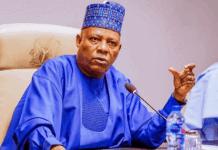As pollution and climate change continue to threaten clean water worldwide, Nigerian geoscientist Oyindamola Oseni is conducting research that could lay the groundwork for safer, low-cost ways to restore contaminated soil and groundwater.
A doctoral researcher at the University of Georgia, Oseni is developing an approach that uses microbial and plant-root systems, enhanced by biochar, a carbon-rich material made from biomass, to break down hazardous pollutants. Her work targets persistent groundwater contaminants like perchlorate and nitrate, which are commonly linked to industrial, military, and agricultural waste.
“We know the environment is getting contaminated,” Oseni says. “The critical question is how we respond with science that protects people and ecosystems, especially in places with limited resources.”
Groundwater pollution is a growing global threat. In both high- and low-income countries, chemicals like nitrate and perchlorate can persist for years in soils and aquifers, threatening food security, drinking water, and public health. Traditional cleanup methods can be expensive and difficult to scale, especially in low-income communities with limited infrastructure.
Oseni’s research is part of an ongoing effort to design a low-cost, sustainable system that enhances the natural ability of microbes and plants to degrade pollutants. By adding biochar, which improves soil chemistry and microbial activity, she hopes to boost the system’s efficiency.
Her work reflects a growing global shift toward nature-based remediation: using natural processes to clean up pollution instead of relying on energy-intensive or chemical-heavy methods. Oseni’s focus on affordability and simplicity makes the research especially promising for use in underserved communities in the U.S., Africa, and elsewhere.
Her project supports EPA goals around sustainable groundwater cleanup and environmental justice in the United States. Globally, it advances the United Nations Sustainable Development Goals related to clean water, climate action, and equitable innovation.
“We need to make environmental science useful for real people in real places,” she says. “That starts with asking what’s possible when science meets community needs.”
Oseni’s expertise lies at the intersection of environmental geochemistry, microbiology, and environmental engineering. After earning a master’s degree with distinction from the Pan African University Life and Earth Sciences Institute (PAULESI), supported by a competitive African Union scholarship, she joined the University of Georgia, where she received internal research funding and was named Outstanding Teaching Assistant by the Department of Geology and the university’s Center for Teaching and Learning.
She has shared her research at key scientific forums, including the American Geophysical Union (AGU), the Georgia Water Resources Conference, and the Clemson Hydrogeology Symposium, where her work has drawn interest for its interdisciplinary scope and real-world application.
As climate change increases pressure on water resources, Oseni sees science as a tool for understanding and protecting Earth’s systems.
Her path from Nigeria to a leading U.S. research institution represents a growing wave of African scientists contributing to global environmental innovation. Her focus on accessibility, resilience, and justice gives her work added urgency.
Oseni continues to refine her system, testing combinations of microbes, plant species, and biochar types to determine how they interact under different environmental conditions. She also mentors early-career scientists and is working to build bridges between researchers in the U.S. and Africa to support practical solutions to shared environmental challenges.
As the world looks for smarter, more sustainable ways to manage pollution, researchers like Oyindamola Oseni show what it means to lead with science, service, and purpose.






















